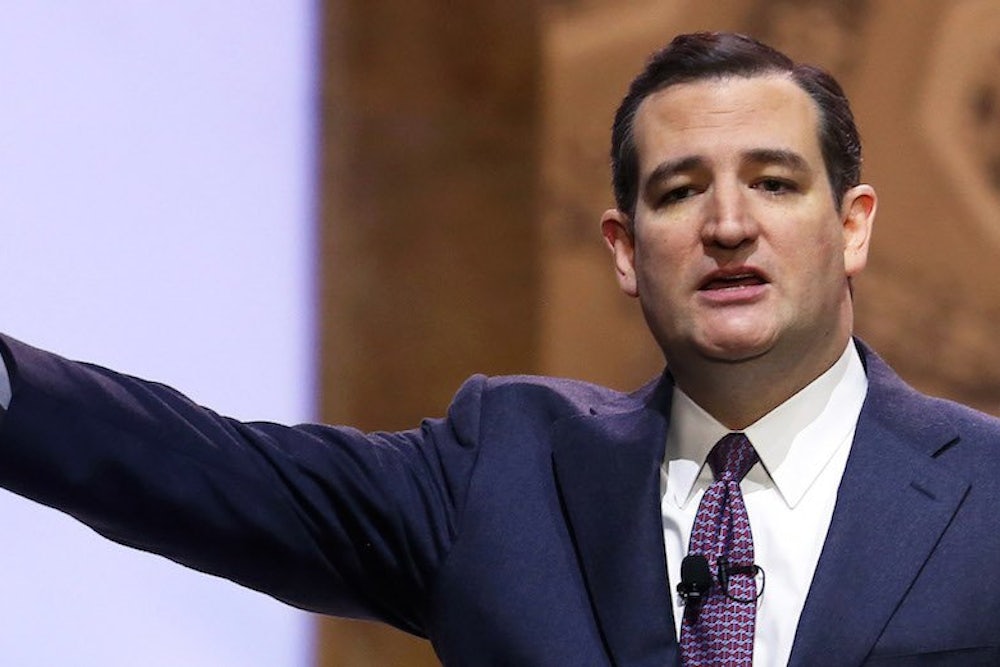Ted Cruz’s plan as chair of the Senate Space, Science, and Competitiveness Subcommittee is to ensure NASA stays focused on space—instead of studying the havoc humans have caused on planet Earth. Space exploration is "what inspires little boys and little girls across this country,” Cruz said at a hearing on NASA’s 2016 federal budget on Thursday, according to National Journal. “I am concerned that NASA in the current environment has lost its full focus on that core mission."
His enthusiasm for space exploration is really just a lack of enthusiasm for understanding how humans affect the world. He is an outspoken climate change denier, claiming previously that there “has been no recorded warming” in the past 15 years. Cruz’s appointment as chair was almost as controversial as James Inhofe's taking over the Senate Environment and Public Works committee, as many expected Cruz would try to undercut NASA’s study of climate change. He's trying to do just that. Cruz criticized the president’s $18.6 billion budget request for NASA in 2016, which boosts funding for studying climate change.
NASA Administrator Charles Bolden, a witness at the hearing, disagreed with the critique of NASA's focus. "We can't go anywhere if the Kennedy Space Center [in Florida] goes underwater and we don't know it," he said. "It is absolutely critical that we understand Earth's environment because this is the only place we have to live."
How important is NASA’s focus on Earth science? Bloomberg’s Eric Roston reported in February that NASA launched a new satellite to provide data on how much water is in the soil. Scientists had measurements on soil moisture before, but nothing like what a satellite 426 miles high can provide. It offers a complete snapshot of Earth’s surface, helping experts predict floods, drought, weather, and agriculture. NASA plans a dozen launches of Earth satellites over the next eight years—which will be crucial to understanding the changing climate. It might not be as thrilling as space exploration, but this data will go a long way to helping people in the most vulnerable parts of the world.
